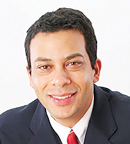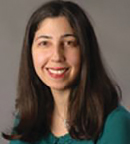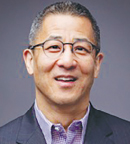Would you rather explain the benefits of three cycles of bleomycin, etoposide, and cisplatin to a hostile crowd of bored teenagers than talk to your program director, supervisor, or colleagues about feeling burned out?
It is an understandable feeling. Professional burnout is a difficult concept to think about, much less discuss, yet it can have a profound effect on a physician’s career. In the normal course of their work, oncologists are often faced with the kinds of setbacks and stress that can lead to burnout. An ASCO membership survey found that 45% of medical oncologist members reported experiencing emotional exhaustion and/or depersonalization symptoms related to burnout.1
“As clinicians, we need to be empowered to enhance our own wellness while we’re charged with delivering care to others,” Fay J. Hlubocky, PhD, MA, of the University of Chicago, told ASCO Daily News in an interview about physician wellness.
Letting negative feelings fester and lead to burnout has a deleterious impact on the professional and personal lives of oncologists; burnout can even lead oncologists to leave the profession entirely. Therefore, it is important to address the signs and symptoms of burnout as soon as possible, before they become a crisis and derail you from the professional goals you have worked so hard to achieve.
The first step is recognizing and acknowledging your own feelings. The second step is telling the people who need to know in order to support you. Physicians familiar with professional burnout shared their advice on how best to begin a conversation about the topic. Not every strategy will apply universally. However, these questions and descriptions can act as a script if you are struggling to find the right words.
“Can we set up a time to talk?”

Nasser H. Hanna, MD
NASSER H. HANNA, MD, of Indiana University, has a saying: “Burnout, by definition, is not something that you can solve in a 30-minute meeting. If it is, you’re not dealing with it or it’s not actually burnout.”
Addressing burnout requires patience and vulnerability, difficult characteristics to demonstrate in a quick, informal conversation or routine meeting. Recognizing that burnout will take time and effort to manage, your conversations will take place with many different people. To start, you may prefer talking to a mentor or a more established physician, or you may feel more comfortable opening up to a colleague who has gone through similar issues. In some cases, a mental health professional might be the best person with which to speak first. There’s no single correct answer on who you can or should talk to.
“I think the cardinal sign of somebody who you could approach is somebody who is a good listener,” said Dr. Hanna. “Being a good listener is the foundation of demonstrating that you care.”
The most important thing about the conversation, however, is that it is taking place, said Shadia I. Jalal, MD, of Indiana University.

Shadia I. Jalal, MD
“We as physicians always think of ourselves as the caregivers,” Dr. Jalal said, “Most of us maybe feel uncomfortable being on the receiving end. I don’t see people wanting to be treated as patients. We want somebody to open up the conversation for us and let us know it is okay to talk.”
“How do I perform under stress?”
ANTHONY BACK, MD, of the University of Washington and Fred Hutchinson Cancer Research Center, explained that one of the difficulties in addressing burnout is the pejorative connotation it carries in the minds of many physicians.
If you do not want to even entertain the notion of burnout, you may be unable to determine whether you are reaching a breaking point or whether you are dealing with more straightforward short-term stress or melancholy.

Anthony Back, MD
“Because the vocabulary [we use] is only ‘burnout’ or ‘no burnout,’ we haven’t developed a language to talk about it,” Dr. Back said. “The reality is everybody has bad days where they are really tired and just want to get home and put their feet up. Everybody has days like that, and it’s normal behavior. The change comes when you feel, every day, like you can’t keep working like this, you can’t keep going at this pace.”
Your supervisor or program director probably won’t be able to answer the question, “Am I burned out?” However, they may be able to help you assess whether you are feeling normal stress or professional burnout. Starting the conversation by asking a more neutral question, such as “Do you think I perform well under stressful situations?”, may be more comfortable and feel more natural in a professional setting. The approach sidesteps the negative connotations associated with the word burnout and allows for a more clinical evaluation of how you are feeling and handling professional challenges.
“Is this normal?”
PERHAPS THE ONLY BENEFIT to 45% of medical oncologists reporting that they’ve experienced emotional exhaustion and/or depersonalization symptoms is knowing that burnout is not an individual problem. You are in good company.
Younger oncologists need only to look at their mentors and senior physicians to see people who likely dealt with symptoms of burnout earlier in their career or know someone who did.
“It comes with the job,” Dr. Jalal said. “If you want to be a good oncologist, you’re going to have some physician burnout. The best way to be a good oncologist is to acknowledge that this is an issue and find ways to deal with it.”
Often, it can be beneficial simply to hear that you are not alone. That is why Dr. Jalal recommends that if you think you are experiencing symptoms of burnout, you should find a trusted person, describe how you are feeling, and then ask, “Is this normal?”
The question will not only help you assess your feelings and identify some of the potential causes of burnout, but can also open up a conversation about a time an older physician or mentor experienced the same thing. Knowing that someone you admire also struggled can help alleviate shame or embarrassment about your feelings.
“We have to acknowledge that burnout is a real problem,” Dr. Jalal said. “It is not a sign of weakness.”
‘These last few days were stressful.’
One of the most difficult aspects of dealing with burnout is recognizing your thoughts and feelings but not personally identifying with them, said Dr. Back.
“Instead of saying, ‘I’m getting burned out,’ it is healthier to say, ‘I’m having a really stressful day today,’” Dr. Back said. “You’re acknowledging that you are having these feelings, but these feelings don’t define you.”
Visit ASCOconnection.org to read the full article. ■
Michelle Dalton, ELS, contributed to this article.
REFERENCE
1. Shanafelt TD, et al: J Clin Oncol 32:678-686, 2014.
Originally published in ASCO Connection. © American Society of Clinical Oncology. “Talking About Physician Burnout: Practical Strategies for Starting the Conversation.” ASCO Connection, July 2017. All rights reserved.

